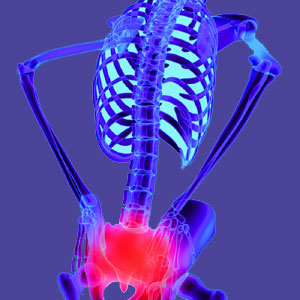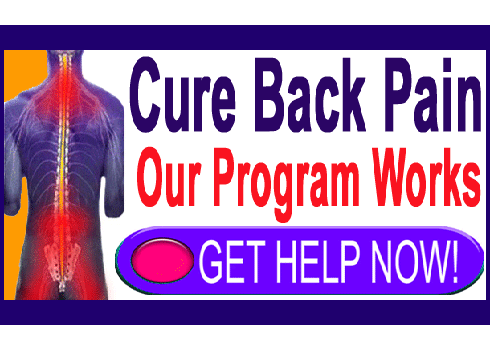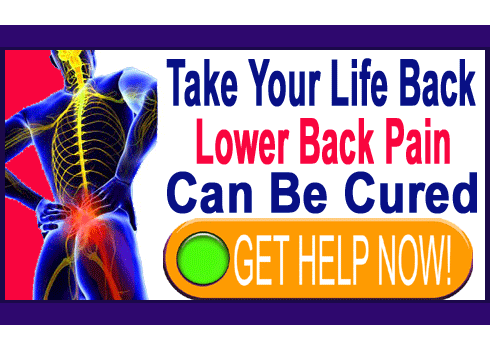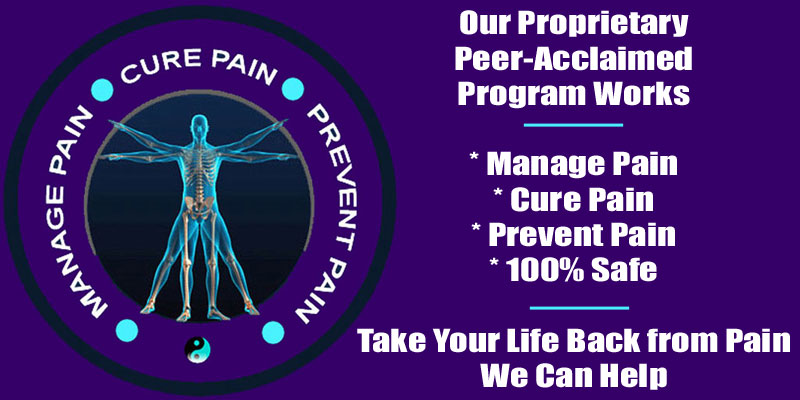
Do you find yourself clenching your butt often or maybe you are not even aware that you are doing it? Chronic clenching can cause lower back pain, as well as be a symptom of particular types of causative conditions that can source a variety of symptoms.
Frequently clenching any part of the body is bad for you and is well known to be an indicator of both conscious and subconscious stress. Mindbody medicine doctors have verified the link between buttock, jaw, fist and other anatomical part clenching and the existence of repressed and suppressed sensitive emotional issues that often fuel chronic pain syndromes. Clenching causes detrimental physical effects on the body, particularly when it is completely unnoticed and becomes integrated into normal posture and activity over long time lines.
This essay details the undeniable link between clenching your buttocks and the development and escalation of chronic lower back pain.
Clenching Your Butt as a Symptom
Sometimes, clenching is a reaction to pain that already exists. There are many structural reasons for pain to exist and in response to persistent pain and its antalgic consequences on the anatomy, many patients find themselves clenching their buttocks for support when standing, sitting upright or seeking to reduce pain in any position or activity. Clenching the buttocks may be conscious in these cases and controllable, conscious and uncontrollable or unconscious and not observed by the patient.
Lower back pain and sciatica can make patients feel unstable when performing physical activities or trying to maintain proper posture. Therefore, a common coping mechanism is to tighten up in order to feel more rigid and stable. Some patients are even told to repeatedly clench their muscles as part of physical therapy programs and might go too far with the practice, leading themselves to develop a chronic clench reflex at any sign of pain. This can become a really serious problem, as we detail below…
Butt Clenching as a Source of Pain
Buttocks clenching can be a direct cause of lower back pain and sciatica, as well as a partial contributor and exacerbating factor. No matter what the primary diagnosis explaining lower back pain is, clenching might play a significant role in the escalation, perpetuation and severity of pain that is experienced.
Chronic clenching can cause muscles to fatigue and develop imbalances. Since the postural muscles are unbelievably strong, constantly clenching some of them will usually cause these to become very tight, while the antagonistic pair muscles(s) will often become lax and deficient.
Chronic buttocks clenching can retard the muscles’ ability to metabolize waste, such as lactic acid, while simultaneously generating more metabolic waste chemicals that now reside in the muscular tissues. These chemicals cause pain and dysfunction when they accumulate. In extreme cases, this is the actual underlying reason for terrible lower back spasms that are frequently and inaccurately blamed on coincidental herniated discs and other spinal diagnoses.
The simple act of muscular tightening can aggravate many lower back diagnoses with structural and nonstructural mechanisms of action. Chronically tight anatomical structures are generally equated with pain and disability, while usually relaxed tissues are equated with health and functionality.
Clenching Your Butt Explained
Doctors of mindbody medicine know for sure that chronic tension in the body, often expressed as clenching, is an indicator of psychoemotional turmoil under the conscious surface in virtually every case. This is why these healthcare professionals will always seek to evaluate muscular condition, particularly in the postural muscles, when a patient complaints of chronic lower back pain.
Some patients report feeling tense, but can not actually pinpoint how this feeling is affecting their body or posture. Some patients know that they are clenching, which is a head start towards diffusing the problem. However, the majority of patients have no concept that the way their body feels is a direct expression of their underlying psychoemotional state or that they are expressing this state through their posture and muscular functionality continuously.
We observe many patients who have received a wide range of diagnoses involving structural spinal pathology and surely, these abnormal conditions are indeed present on imaging reports. However, since their care provider made the diagnosis without symptomatic correlation, the simple fact that pain existed in the muscles and was often caused or aggravated by chronic clenching on the buttocks and other postural muscles was absent from diagnostic evaluation reports.
Being that the symptoms did not correlate to the diagnosis, we often suggested that the patient was most likely suffering from a nonstructural pain syndrome. In cases where the patient was receptive and took our recommendation to try knowledge therapy as the optimal treatment path, symptoms ameliorated rather quickly in virtually every case, proving that the structural diagnosis was not only wrong, but merely an incidental factor of no consequence when it came to the painful complaint.
Lower Back Pain > Tips for Lower Back Pain > Clenching Your Butt





